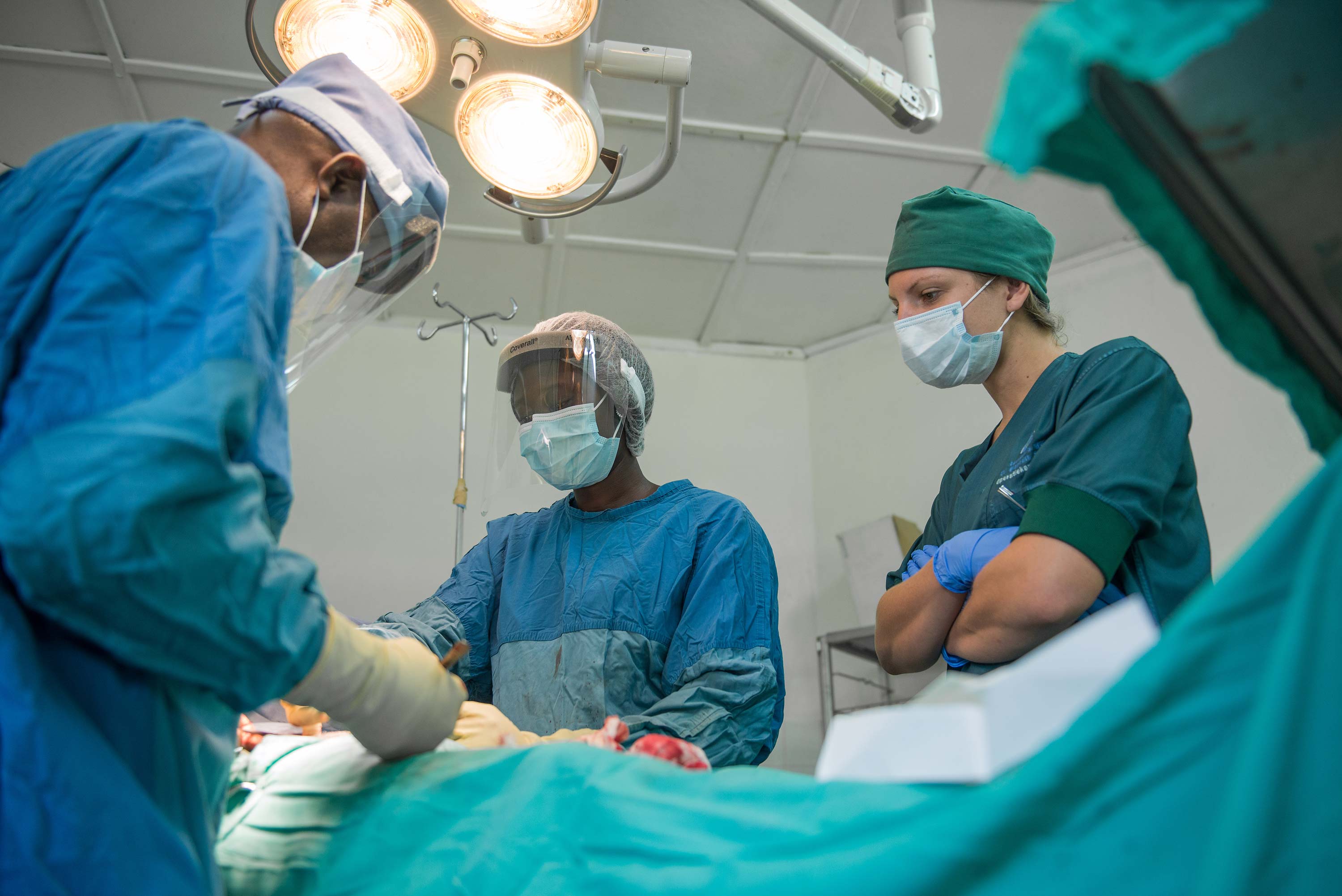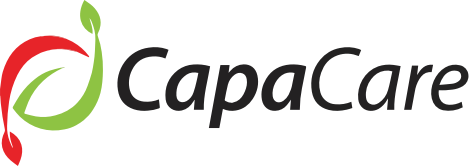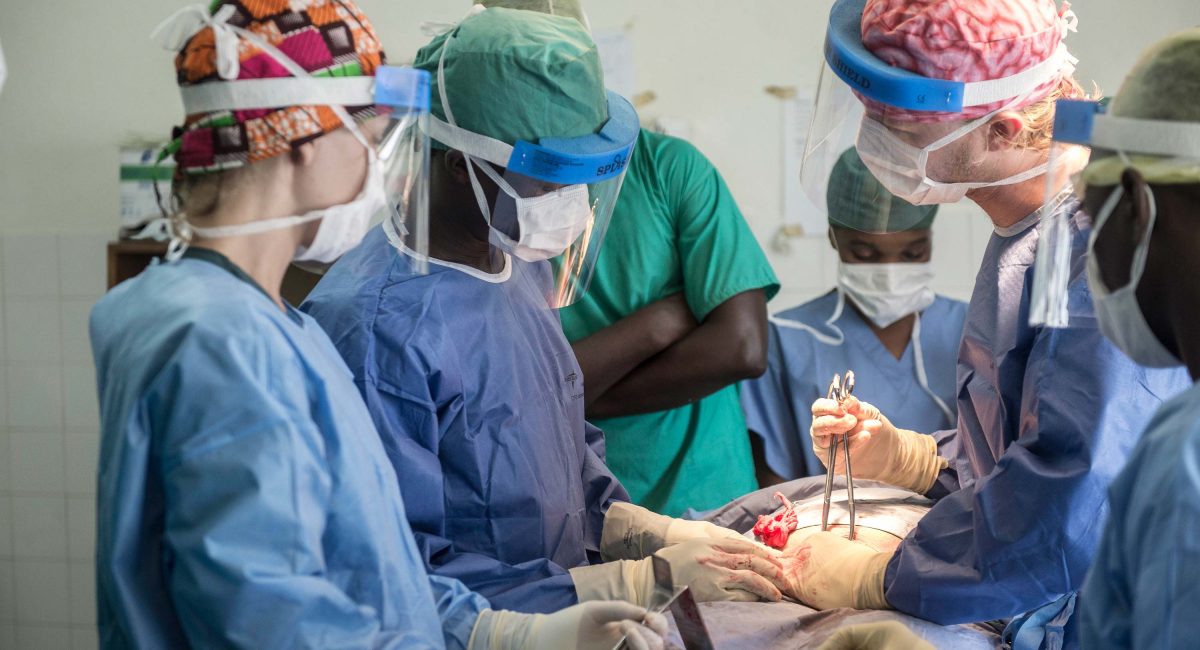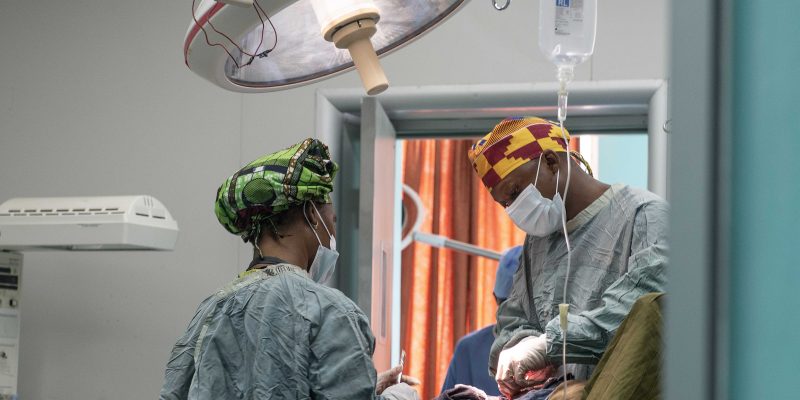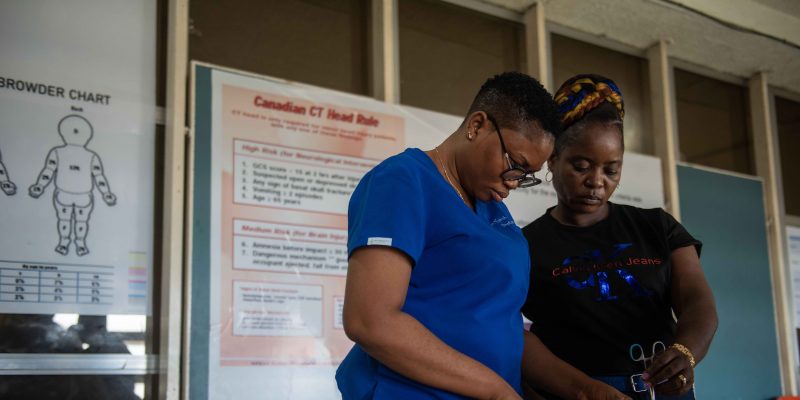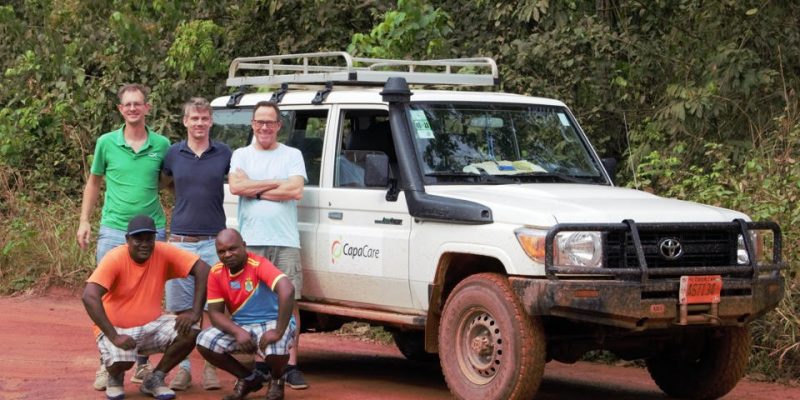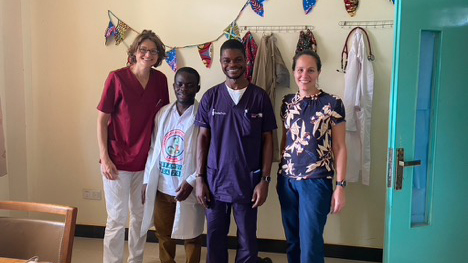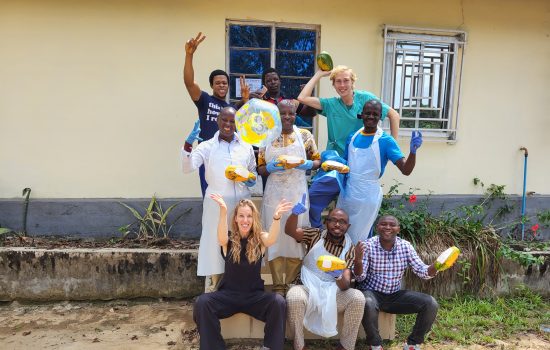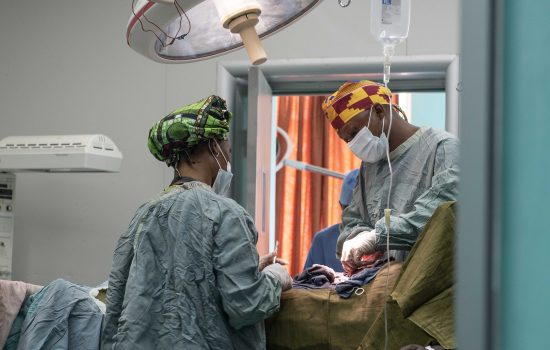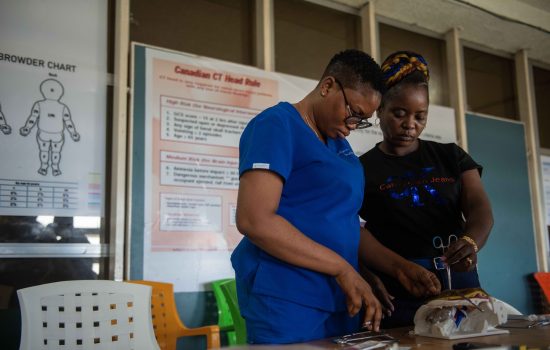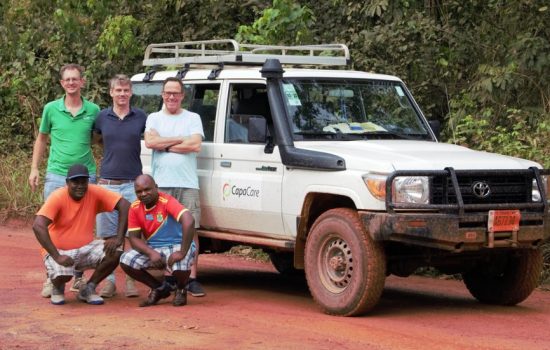It is now ten years since the first students started their journey in the Surgical Training Program (STP) in Sierra Leone. This was the start of CapaCare providing training in life-saving surgical and obstetric skills. During 2021, we are reflecting on the last ten years by interviewing two people every month that have played an important role in the development of the organization and program. This month we interviewed Martelien Grootjans and Daniel van Leerdam, two of our former Program Coordinators. We talked with them about the Dutch chapter of CapaCare, the first graduation ceremony and how working for CapaCare sparked interests in health care systems.
What are your former and current rolls within CapaCare?
Daniel: We worked in Masanga as Program Coordinators from 2016 until the end of 2018, three years in total. After that we took a little break. In 2019 we launched the foundation CapaCare Netherlands with a group of former tropical doctors. We are now both on the board of CapaCare Netherlands.
How was it to fulfill the task of Program Coordinator together?
Martelien: We were indeed the first couple with the same background that had the position of Programme Coordinator together, as we are both tropical doctors. Daniel started as the Programme Coordinator of CapaCare and I focused more on the clinical work in Masanga hospital. Later on, there was so much work to be done for CapaCare, that we decided that I would work for CapaCare as well. Although my official title was not Program Coordinator, we just did the job together.
You are both Board members of young organization CapaCare Netherlands. What are the goals of this NGO?
Daniel: CapaCare Netherlands was established in a re-organization of the overall structure of CapaCare. At first, CapaCare was mainly organized through Sierra Leone and Norway. Now the NGO has solidified their structure by having an chapters of CapaCare in different countries with CapaCare International providing overview.
CapaCare Netherlands has multiple goals. From the perspective of CapaCare NL, we feel that it is important to provide support supervision for the Program Coordinators. Sometimes the work can be very challenging, so we want to make sure that the job for the tropical doctors is well defined and protected. We also want to focus on the learning of the students after they graduated, by making sure that there is an ongoing educational program for them as well.
Martelien: CapaCare NL also focusses on the policy of the education and fundraising within the Netherlands. All in all, it is about the professionalization of CapaCare. All members of CapaCare Netherlands have worked in Masanga for at least two years, so each board member knows the challenges and the good part of living there.
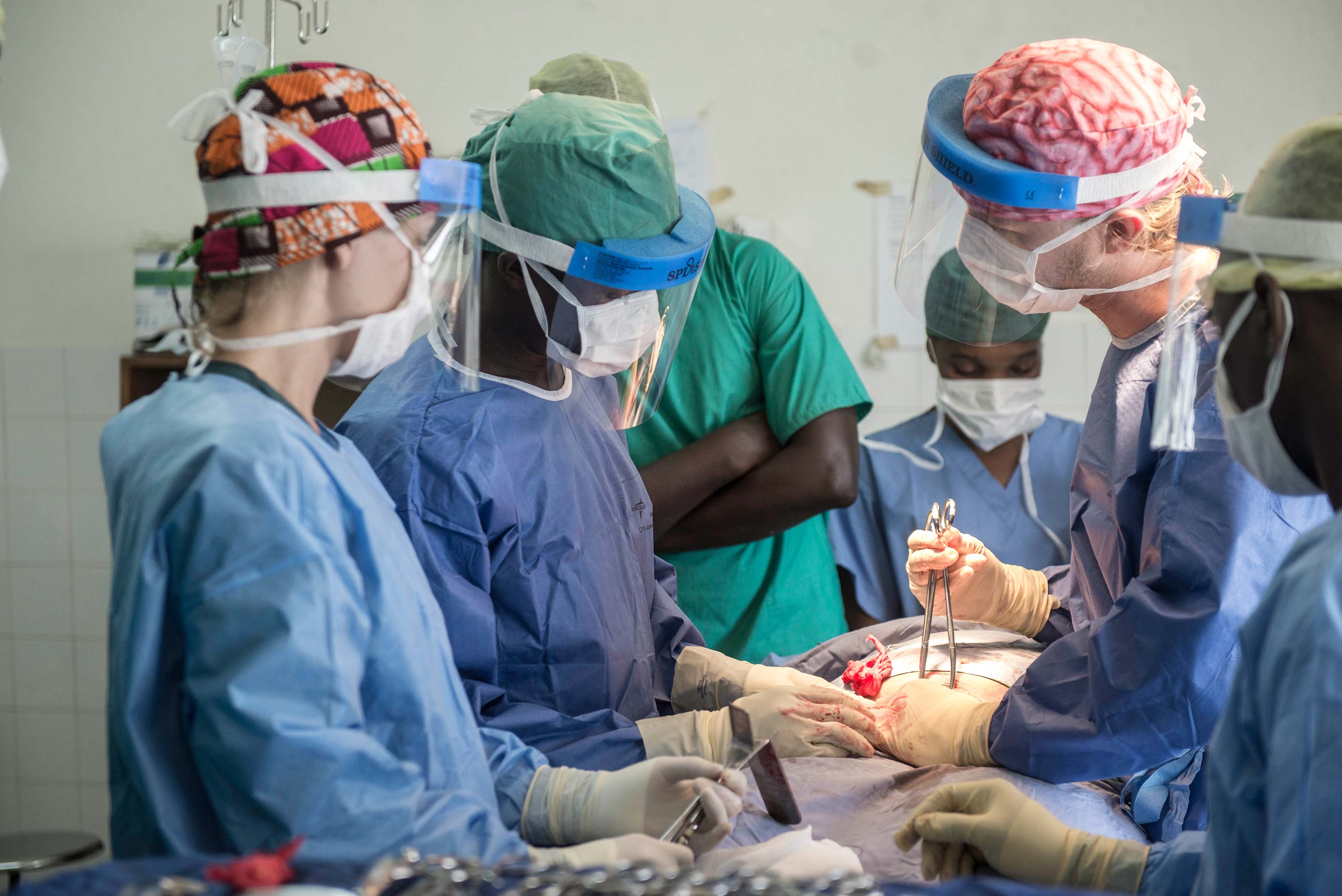
How did working for CapaCare influenced your lives?
Daniel: When we started to work for CapaCare, we were already tropical doctors, and we knew what we wanted in our lives. We wanted to live and work in an environment such as Masanga, in a small hospital without all the tools and possibilities that you have in hospitals and high-income countries. We wanted to make an impact for people without access to healthcare and that was what we were trained for during our specialzation. During the education as a tropical doctor in the Netherlands, there was a lot of focus on doing stuff by yourself. You are the doctor, you are going the help the patients, you are going to help managing the hospital and bring it on to a higher level. We made a switch in working this way when we started to work for CapaCare. We realized that you do not have to be the center of everything as a tropical doctor. The work of CapaCare was about the knowledge that you had to transfer knowledge to make sure that the people over there do the work themselves.
Martelien: So, it’s basically a different way of thinking of working in a low-income country, on how you can contribute in a sustainable way. That is one of the important switch that we had to make and in which we really believe as well.
Daniel: By working for CapaCare we realized that the heath is more than just serving patients are a doctor in the hospital. And that impacted our further life choices. It inspired Martelien to do a master in medical education and I did a master thesis in international public health
One of the things that you helped organize during your time in Sierra Leone was the first graduation of the students. It is said that it was a great success, what can you tell us about it?
Martelien: As Program Coordinators, we wanted to let the students know how much they were appreciated by taking part in the program. We saw many students grow from being shy and insecure about their surgical skills to a health care worker that feels comfortable with performing an operation independently. And that after only three years of surgical training! As in most places, a graduation ceremony is a big thing in Sierra Leone and together with the CapaCare family we decided that the students of CapaCare also deserved something like that.
Daniel: A graduation ceremony was in line with how we thought our roles as Program Coordinators in the organization. We felt that it was our responsibility to create an atmosphere in which people felt that they could contribute to the program by using their talents. For example, the students should be able to focus on learning and not worry about other things. The teachers that come in should be focused on teaching and be happy in Masanga. The graduation ceremony was an extension of that and an opportunity to connect a lot of people who worked for or with CapaCare.
Martelien: The graduation ceremony was a celebration of what CapaCare had reached up to that moment. A lot of important people were there, such as Deputies from the Ministry of Health and Sanitation (MoHS), doctors from the partner hospitals, the highest placed person of the WHO in Sierra Leone, colleagues from other NGOs and of course all the students with their families.
Daniel: One of the honored guests was Professor Doctor Lynch. He was a gynecologist in the United Kingdom, but he was originally from Sierra Leone. By inventing the B-Lynch suture, an easy way to tamponade the uterus, he indirectly saved thousands of lives all over the world. After one of our students contacted him about this B-Lynch suture, he became interested in the CapaCare program. He had never been back to Sierra Leone since he left for to the United Kingdom, but years after his retirement he came back for the graduation ceremony. It was a major honor to have him as one of our special guests and he became one of our trainers.
Martelien: One of the other goals of the ceremony was to show all (the important) people in Sierra Leone what CapaCare was doing in Masanga. CapaCare is now quite known in Sierra Leone, but that was not the situation when we started our jobs as Program Coordinators. After the ceremony, Doctor Håkon came to us and told us how important the graduation has been for the program and for him.
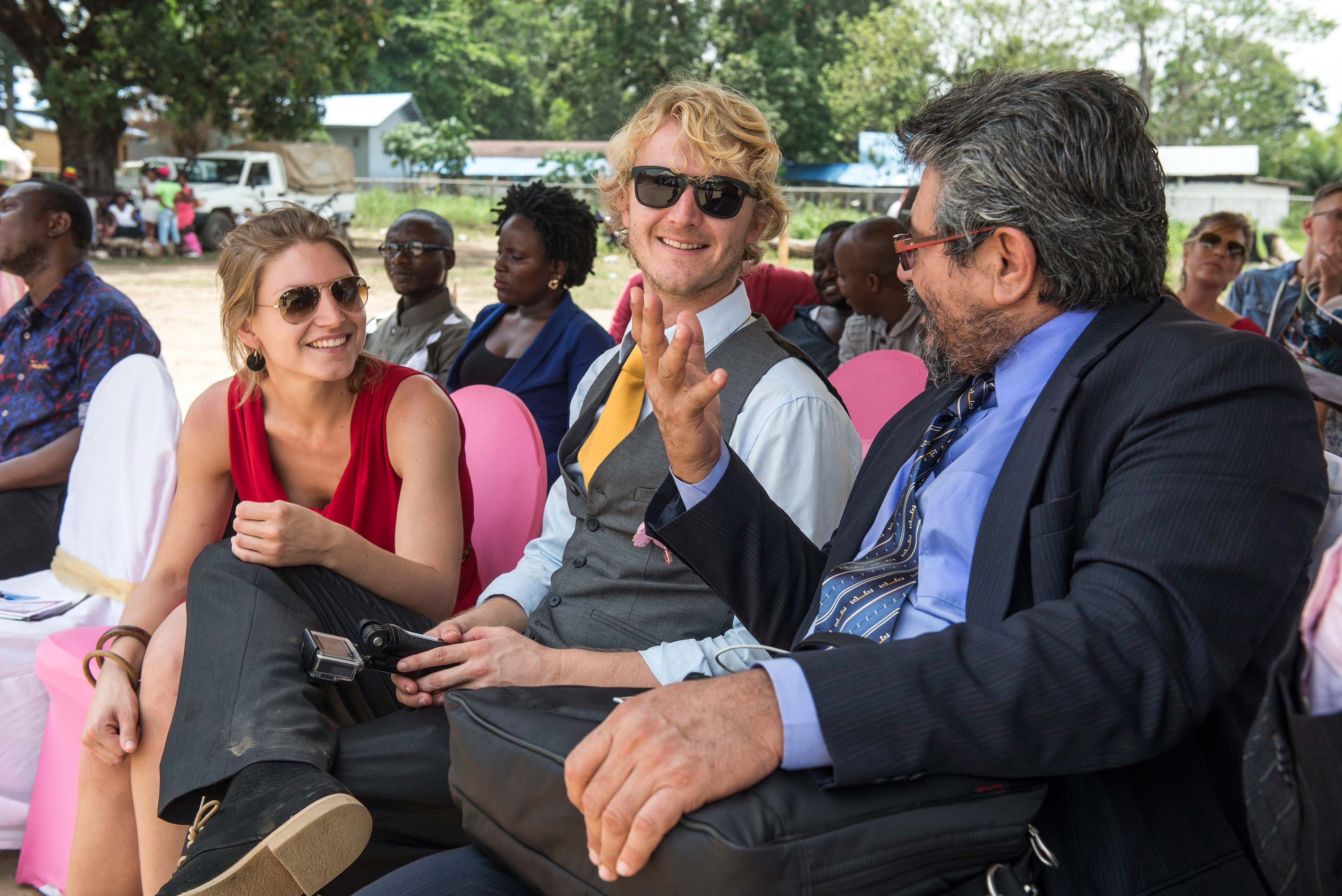
How do you feel about the future of CapaCare?
Daniel: CapaCare has a potentially bright future. I think CapaCare has proved that it is a NGO that really wants to make a difference. For example, we are focussing on collaboration with local institutions to ensure that the program is sustainable. That means that CapaCare does not want to continue the program as it is at all costs but tries to adjust the program where it is necessary and integrate it into the plans of ministry. The plan is that the responsibility of the program moves towards the government.
Unfortunately, that comes with a lot of challenges as well. For example, the students that are trained are in a difficult situation. We see more and more that the students are moving out of the program, since sufficient protection and compensation of their work is lacking. The students are finding greener pastures to work in, leaving their skills to waste. I believe that by working together with the government, the new generation of trainees will be more embedded within the health care system. But we have a duty towards the people that were trained by CapaCare since the start, to keep on fighting for their place in the health system.
If we can keep on making people enthusiastic for the program, there might be a future of similar programes even in other countries. It does not necessarily have to be about surgery, it can also be about medicine, pediatrics or midwifery. If you want to make sure that we reach universal health coverage in low-resource settings (as part of the sustainable development goals in 2030), the concept of task-sharing should be widely embraced and implemented. CapaCare has the experience and willingness to work together.
Martelien: We need to keep on thinking about the long run, maybe another 10 years before all the current challenges (e.g. absorption of the CapaCare workers in the government system and formal registration of this cadre) are addressed. Of course, we need to accomplish self-sustainability. With our mindset we want to do these things as soon as possible, but it goes slowly in Sierra Leone. The current Program Coordinator is still in discussion with the government about the same issues that were there during our period. Although this might be challenging sometimes, we have learned that working together with the government is the only way forward.
Daniel: All students, also those who are already graduated deserve to be acknowledged. The success of the program and the attention it receives inside and outside of Sierra Leone is really because of their efforts!
